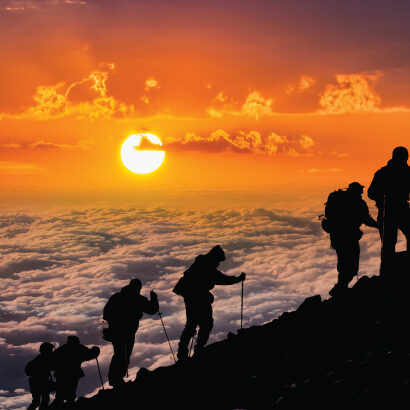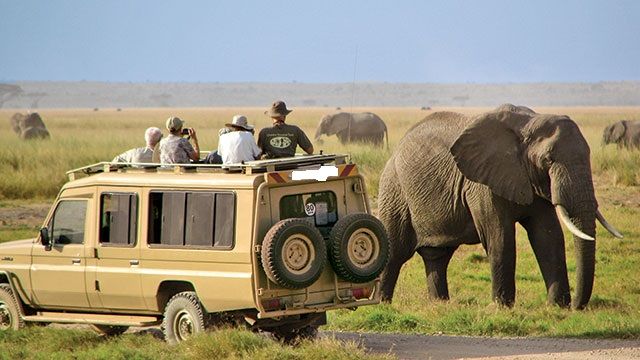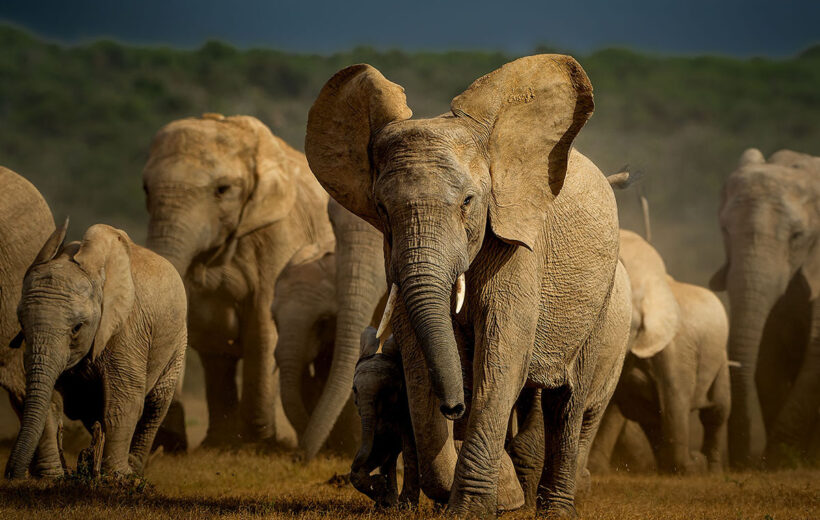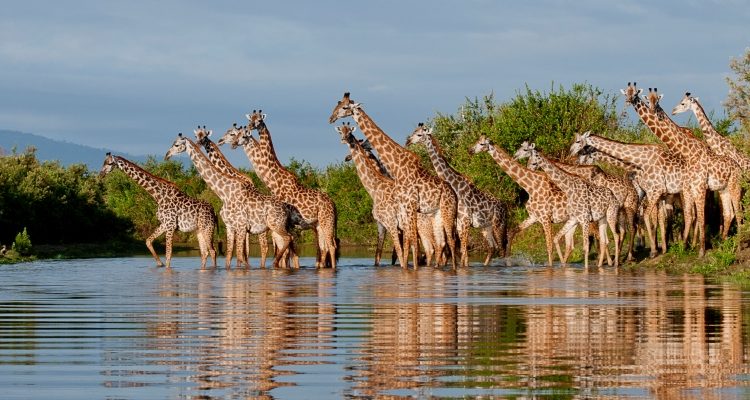canoeing
Canoeing
Canoeing, also known as paddling or kayaking depending on the type of boat used, is a recreational activity involving the use of a small watercraft propelled by a paddle. Here's an overview:
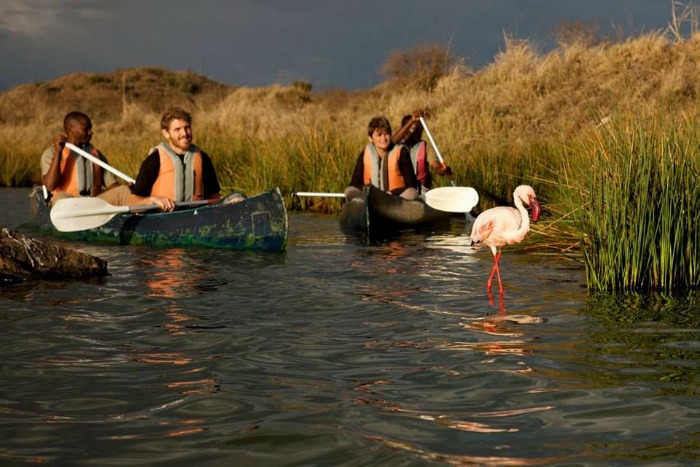
Key features of canoeing
-
-
-
Water Exploration: Canoeing allows individuals to explore rivers, lakes, and waterways, offering unique perspectives and access to areas often inaccessible by land.
-
Fitness and Recreation: It's an excellent form of exercise, engaging various muscle groups, particularly the arms, shoulders, and core. It provides a low-impact workout suitable for all fitness levels.
-
Nature and Wildlife Observation: Canoeing offers opportunities for wildlife observation and experiencing nature up close, making it popular among nature enthusiasts and photographers.
-
Social and Group Activities: Canoeing can be a social activity, perfect for group outings, family adventures, or team-building exercises.
-
Adaptability: Canoeing can cater to different skill levels, from beginners to experienced paddlers. There are various types of canoes and kayaks designed for specific purposes, including recreational, touring, whitewater, and sea kayaking.
-
Safety and Equipment: Proper safety equipment, including life jackets, helmets (for certain types of kayaking), and paddles, is essential for a safe and enjoyable experience on the water. Knowledge of basic paddling techniques and water safety guidelines is crucial.
-
-
Best Time to Visit
In Tanzania, the best time for canoeing depends on the specific region and waterways you plan to explore. Here are considerations for canoeing in Tanzania:
-
Dry Season (June to October):
- This period generally offers more favorable conditions for canoeing due to lower rainfall and reduced water levels in rivers and lakes, providing clearer and calmer waters. It’s a popular time for water-based activities.
- Wildlife viewing might be more rewarding as animals gather around water sources during the dry season, enhancing the overall experience.
-
Shoulder Seasons (May, November):
- The months preceding and following the dry season can also be suitable for canoeing. May might still have some lingering rainfall, but it could offer quieter waterways, while November marks the start of the short rains.
-
Regional Considerations:
- Lake Tanganyika: Canoeing on Lake Tanganyika, Africa’s deepest lake, is generally favorable year-round due to its stable water levels and pleasant temperatures. However, the dry season (June to October) can provide clearer visibility in the water for snorkeling or wildlife observation.
- Rufiji River and Selous Game Reserve: Canoe safaris along the Rufiji River in the Selous Game Reserve might be best during the dry season (June to October) when water levels are lower and wildlife congregates near the riverbanks.
-
Weather and Wildlife:
- Consider the region’s weather patterns and wildlife movements when planning your canoeing trip. Dry seasons usually offer clearer skies and better wildlife sightings.
-
Crowds and Availability:
- Consider the tourist seasons and local holidays. The dry season, being popular among tourists, might lead to more crowded waterways and higher accommodation prices.
Before planning your canoeing adventure in Tanzania, it’s advisable to research the specific region or waterway you intend to explore and consider factors such as weather patterns, water levels, wildlife movements, and local conditions to determine the best time that aligns with your preferences and expectations for your canoeing experience.
Certainly! When engaging in canoeing, there are various activities and experiences you can enjoy. Here are some things to do while canoeing:
-
Explore Scenic Waterways:
- Paddle through serene lakes, winding rivers, or coastal areas, exploring picturesque landscapes, and taking in the natural beauty around you.
-
Wildlife Observation:
- Keep an eye out for wildlife along the shores or in the water. You might spot birds, fish, amphibians, or even larger animals like otters, beavers, or alligators in certain regions.
-
Nature Photography:
- Capture stunning landscapes, wildlife, and scenic views while paddling. Canoeing provides unique perspectives for photographers to capture nature’s beauty.
-
Fishing:
- Enjoy fishing from your canoe. Cast a line and try your luck catching various freshwater fish species, adding an extra dimension to your canoeing experience.
-
Picnicking or Camping:
- Stop at secluded spots along the waterway for a relaxing picnic or plan an overnight camping trip. Some waterways have designated camping areas accessible by canoe.
-
Birdwatching:
- Canoeing offers excellent opportunities for birdwatching. Observe and identify different bird species that inhabit the water’s edge or soar above the water.
-
Learn and Practice Skills:
- Improve your canoeing skills by practicing various paddling techniques, navigating different water conditions, and learning how to maneuver your canoe effectively.
-
Group or Family Outings:
- Enjoy canoeing as a social activity. Go on group outings with friends or family, promoting teamwork and bonding while paddling together.
-
Relaxation and Meditation:
- Use canoeing as a form of relaxation and mindfulness. The gentle rhythm of paddling combined with the calming effects of nature can provide a peaceful and meditative experience.
-
Adventure and Exploration:
- Embark on adventurous journeys, discovering hidden coves, small islands, or remote areas accessible only by canoe, adding an element of exploration to your outing.
These activities make canoeing a versatile and enjoyable experience, offering a range of opportunities to connect with nature, indulge in outdoor pursuits, and create memorable moments while navigating the waterways.
Certainly! There are several national parks and reserves in Tanzania where canoeing activities are permitted, offering unique opportunities to explore waterways and observe wildlife from a different perspective. Here are some parks where canoeing is allowed:
-
Lake Manyara National Park:
- Lake Manyara is renowned for its diverse birdlife and scenic beauty. Canoeing or boating activities are available on the lake, allowing visitors to observe wildlife, including hippos and various bird species, from the water.
-
Selous Game Reserve:
- The Rufiji River within the Selous Game Reserve offers fantastic canoeing opportunities. Visitors can embark on multi-day canoe safaris or shorter excursions along the river, encountering hippos, crocodiles, and diverse birdlife.
-
Arusha National Park:
- Canoeing or boating is permitted on Momella Lakes within Arusha National Park. Visitors can paddle in canoes or small boats while enjoying the scenic views and observing birdlife, including flamingos.
-
Rubondo Island National Park:
- Situated on an island in Lake Victoria, Rubondo Island National Park offers canoeing and boating activities. Visitors can explore the island’s diverse ecosystems, spot birds, and even encounter chimpanzees.
-
Mikumi National Park:
- The park has various water sources where canoeing activities might be available, allowing visitors to explore the park’s diverse habitats and potentially observe wildlife near waterways.
-
Katavi National Park:
- During the dry season when the floodwaters recede, some areas of Katavi National Park may offer canoeing opportunities, allowing visitors to explore the park’s watercourses and witness wildlife interactions.
It’s important to note that while canoeing is permitted in these parks, specific regulations and availability of canoeing activities might vary, and it’s advisable to check with park authorities or tour operators for current information, safety guidelines, and any required permits before planning a canoeing excursion.
Cultural experiences in canoeing activities in Tanzania can offer a blend of nature exploration and immersion into local cultures. While the focus of canoeing is often on the natural environment and wildlife, there are opportunities to incorporate cultural elements into these experiences:
-
Local Guides and Interactions:
- Engage with local guides who possess extensive knowledge not only about the natural surroundings but also about the cultural heritage of the area. They can share stories, legends, and insights about the region’s history, traditions, and the indigenous communities living nearby.
-
Visiting Local Villages or Communities:
- Some canoeing excursions may include visits to villages or communities along the waterways. This allows for cultural exchanges, interacting with locals, learning about their lifestyles, customs, and possibly witnessing traditional activities or crafts.
-
Cultural Performances or Demonstrations:
- In certain areas, cultural performances or demonstrations might be organized as part of the canoeing experience. This could involve traditional dances, music, or craft demonstrations by local community members, providing insight into their cultural practices.
-
Learning Traditional Skills:
- Opportunities may exist to learn traditional skills from local communities, such as fishing techniques, crafts, or boat-making methods used by indigenous groups living near the waterways.
-
Shared Stories and Knowledge:
- Use the time during canoeing breaks or stops to engage in conversations with guides or locals. Share stories, cultural anecdotes, or ask questions to gain a deeper understanding of the local culture and way of life.
-
Respect for Cultural Practices:
- While enjoying the canoeing experience, it’s essential to respect local customs and practices. Observe cultural etiquette, seek permission before entering cultural sites or villages, and demonstrate appreciation for the community’s heritage.
-
Supporting Local Communities:
- Choose canoeing operators or tours that prioritize community involvement and support local initiatives. This helps contribute positively to the local economy and sustains cultural heritage.
Cultural experiences intertwined with canoeing activities in Tanzania can provide enriching insights into the diverse cultures, traditions, and ways of life of the local communities living in proximity to the waterways, fostering greater appreciation and understanding of their heritage
When planning canoeing activities in Tanzania or any other location, several crucial factors should be considered to ensure a safe, enjoyable, and rewarding experience. Here are important things to consider:
-
Safety Precautions:
- Prioritize safety by wearing appropriate gear such as life jackets or personal flotation devices (PFDs) and following safety guidelines provided by tour operators or guides.
-
Skill Level and Experience:
- Choose canoeing activities that align with your skill level. Beginners should opt for calm and easy waters, while experienced paddlers may seek more challenging environments.
-
Weather Conditions:
- Check weather forecasts before embarking on a canoeing trip. Avoid venturing out in adverse weather conditions like storms, strong winds, or rough waters, which can compromise safety.
-
Local Regulations and Permits:
- Research and adhere to any regulations, rules, or permit requirements for canoeing in specific parks or waterways. Obtain necessary permits or permissions from park authorities or local communities if required.
-
Guided Tours and Local Knowledge:
- Consider joining guided canoeing tours led by experienced professionals or local guides who possess knowledge about the waterways, wildlife, and cultural aspects. They can enhance the experience and ensure safety.
-
Waterway Conditions and Hazards:
- Be aware of potential hazards such as rapids, currents, submerged obstacles, or wildlife like hippos or crocodiles in certain areas. Assess water conditions and plan accordingly.
-
Equipment Inspection:
- Inspect the canoe or kayak and associated equipment (paddles, safety gear) before use. Ensure they are in good condition and functioning properly to avoid any issues during the excursion.
-
Environmental Considerations:
- Practice Leave No Trace principles by minimizing impact on the environment. Avoid littering, respect wildlife, and follow guidelines for waste disposal while canoeing.
-
Physical Preparedness:
- Assess your physical fitness and ensure you’re prepared for the paddling experience. Stay hydrated, protect yourself from sun exposure, and be prepared for the physical exertion involved in paddling.
-
Emergency Preparedness:
- Carry essentials such as a first aid kit, communication devices (e.g., cell phone in a waterproof case), and emergency provisions in case of unexpected situations.
By taking these considerations into account, participants can enjoy a safe, enjoyable, and culturally enriching canoeing experience in Tanzania’s stunning waterways and natural environments

